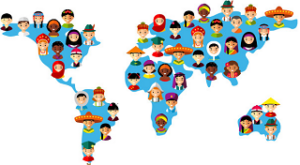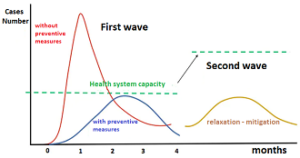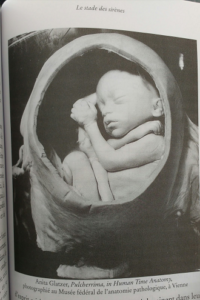
Arquivo para a ‘SocioCibercultura’ Categoria
Native culture networks and post-colonialism
Archaeological and paleontological research indicates that Africa is the probable continent that gave rise to the human species, fossils of hominids found in Africa (for example, in Tanzania and Kenya) indicate that the primitive species inhabited that region about five million years ago .
is the probable continent that gave rise to the human species, fossils of hominids found in Africa (for example, in Tanzania and Kenya) indicate that the primitive species inhabited that region about five million years ago .
However. in historical literature, when speaking of originating cultures, there is talk mainly of ancient cultures such as the Maya in Mexico, the Incas in the Andean region, the indigenous people mainly from the Brazilian Amazon region, in Colombia the population is almost two million inhabitants, 4 , 4% that has the Indigenous Organization of Colombia (ONIC), which are organizing according to covid-19.
In the Amazon, the Sahu-Apé indigenous community is only 80 km from Manaus, and organizational data (such as Terra Viva) show that 65% of the indigenous population is in poverty and 30% in extreme poverty.
In Peru, a large number of indigenous cultures are returning to the mountains due to food scarcity and fear of covid-19, often only with the clothes of the body, in Chile and Bolivia the influence of indigenous culture is very strong to dominate the colonial.
Thus, these peoples form communication networks for the preservation of their culture and the self-defense of their cultural values, and it is necessary to think about sustainable development, not massacres, as savage colonialism did, not only with violence, but also with their cultural values.
Modern electronic networks, which are social media, do not eliminate or overlap existing cultural networks, it is necessary not to ignore them and respect their values and culture.
The question of Being also involves the sociability and networking of native cultures, a good part of contemporary culture in crisis ignores or quibbles about the ontological values that are at the root of many works around native cultures, it is necessary to think post- colonial that does not see the civilizing process only from the Eurocentric and colonial point of view.
See my interview in USP Radio, University of São Paulo, at 10 h (in New York) at link: www.radio.usp.br/?page_id=5404 .
Eroticism in times of crisis
The subject is difficult when it does not deviate towards general liberalism, defense of the erotic at any price or “freedom of the body”, but what happens is that among the various civilizing crises, human love is also in crisis.
defense of the erotic at any price or “freedom of the body”, but what happens is that among the various civilizing crises, human love is also in crisis.
I find little literature exists about it that does not go to laisses faire or to unhealthy moralism, what happens is that, recognizes the philosopher Byung Chul Han, we live The agony of eros, the inability to love, and in the diagnosis of the Korean philosopher- German, we are destroying relationships based on the erosion of the Other, which affects all areas of life and goes hand in hand with a “sick narcissism” that invades our lives.
He writes his most profound diagnosis: “The fact that the other person disappears is a dramatic process, but it fatally advances, in a sneaky and barely noticeable way”, an indication is the number of selfies where people try to show their different faces, without choosing a situation and anywhere.
If we do not recognize the other person as an “other”, we become unable to love, and thus to reach a living and liberating experience of love, it is liberating even from ourselves, from our frustrations and inconsistencies, summarizes Han is the other who saves us from ourselves.
In times of crisis, love, affection and true interest in the Other is what can make the crisis less serious, if we are living the opposite, more selfishness, more narcissism and more competition (Han argues as the society of efficiency and appeal success) means more crisis and less eroticism.
There is no way to develop love and joy around these situations, even those who have a love relationship suffer the consequences of the violent environment and calls for attitudes contrary to love and affection, even friendly relationships that require empathy are at stake .
I also make a reflection beyond Han, because precisely the society that most exalts eroticism suffers from his agony, perhaps what we see as erotic goes beyond the limits of privacy, of some modesty and of respect for the limits of the Other and of the body itself.
The discourse of respect is not outdated, after all, what are the frightening numbers of domestic violence of all kinds, but the absence of respect, André Groz’s “Inside and Outside” (1929) image gives interesting outlines on the connection aspect of eroticism with a lack of sensitivity;
The political animal: prejudice and judgment
Hannah Arendt’s argument about the Zoon politikon is fundamental, an argument that if the man had something political that belonged to his essence, it would not be something of the relationship between men, and thus, totally outside men, in the polis, or that is, in what Arendt calls the intra-space where the relationship is established.
an argument that if the man had something political that belonged to his essence, it would not be something of the relationship between men, and thus, totally outside men, in the polis, or that is, in what Arendt calls the intra-space where the relationship is established.
Politics is thus a relationship, and it presupposes diversity among men, and thus resembles our prejudices, since most of us are not a professional politician, says in fragment 2: “such prejudices, common to all of us, they represent something political in the broadest sense of the word: they do not spring from the pride of educated people and they are not guilty of their cynicism, who have lived too long and understood less. ” However, it is evident that this justification of prejudice as a measure of judgment within everyday life has its limits, it is necessary that it does not become a judgment, so opinion (doxa) is the raw material of politics (and not philosophical, scientific knowledge) or technical, episteme e or techné) that defines democracy.
So it is necessary, as Hannah Arendt did to enter into the question of prejudice and judgment, “the danger of prejudice lies in the fact that a piece of the past always lurks in them”, and will say even further ahead: “The danger of prejudice lies in the fact that it was always anchored in the past, that is, very well anchored and, because of that, not only does it anticipate judgment and avoid it, but it also makes a true experience of the present with judgment impossible. ”
What happens if a prejudice becomes something imperative: “But it is a prejudice in itself that something imperative fits the judgment; the criteria, while they last, can never be forcedly demonstrated; they only serve, always, the limited evidence of the judgments on which everyone agreed and on which it is no longer necessary to fight or argue ”, and thus democracy must establish the limits between the judgment and the prejudices.
The fact is that prejudice anticipates judgment, so phenomenology establishes the need for epoché, precisely the suspension of judgment in recognition that we always have our preconceptions (philosophical hermeneutics uses it in a positive sense), in general we resort to the past, as explained by Arendt, because reason is temporal and limited to historical periods, forming in quantitative terms only many aspects of History, in which the new is rare and the old dominates politics.
And if the pandemic continues
Fredric Jameson drew attention years ago about the possibility of a cosmic catastrophe (an asteroid that threatens life on earth or a virus that matters to humanity), and the threat would awaken global solidarity, small differences are overcome and everyone works together to find one. solution in real life, now the pandemic shows whether this is possible or not, if the question were asked today the clear answer would be no, we are divided and not very sympathetic.
cosmic catastrophe (an asteroid that threatens life on earth or a virus that matters to humanity), and the threat would awaken global solidarity, small differences are overcome and everyone works together to find one. solution in real life, now the pandemic shows whether this is possible or not, if the question were asked today the clear answer would be no, we are divided and not very sympathetic.
The speculations about the new normal were exhausted, in the political polarization curiously the two poles are seriously wrong, one in stating that the pandemic is the sign of exhaustion of the society we live in and so we will go for a utopian change, and the other that insists on saying that the pandemic does not exist, they lack realism.
An example of this utopian change is in the “Wuhan Soup” in which several famous authors on the left pointed to a “collapse of capitalism” due to the pandemic.
Jameson’s logic is to understand postmodernity as a “cultural logic” and that this would be a third phase of expansion of capitalism, the so-called late capitalism, what he seeks is behind the cultural manifestations of our time to understand what kind of “logic” they have, without the necessary criticism of them.
The discussion by Daniel Bell and Jean-François Lyotard are points of reference in this discussion from the 1970s onwards, because Bell placed the position of understanding that the new economic phase has put the notion of industrial capitalism in the past, and Lyotard has unveiled a change in the statute of science and technology from the computerization scenario in developed societies, but conventional criticism was stuck with a superficial criticism of the so-called “techno-science”.
What both advocate and here give strength to a third way of change, neither capitalism nor socialism, is a split with modern thought and with the very experience of modernity, something that is linked so much to the impact of scientific and technological revolutions from the 1960s, and that collapsed all modern narratives, which are historically situated at a point in the past of recent history and do not point to a clear future.
So is the pandemic, the absence of a clear future, it challenges us to rethink the future without conventional narratives, and the second cycle of the pandemic crisis is already the logic that points to the future, without changing social attitudes and behaviors the future it will not be promising, regardless of the appearance of the vaccine, other viruses may come and we will not accept a moment of pause, isolation and less haste in everyday life, we are stuck with the logic of industrial production and consumption.
There is a deeper logic that is the aortic relationship, the inorganic about the organic, that Sloterdijk defends and that Hölderling spoke about, some mystics too.
Nets and Bubbles
A society that already lived in bubbles, be they cultural, political or  religious, found itself even more stuck in its leaves with the pandemic and social isolation, although this had a positive aspect of recovering intra-bubble relations, however extra bubbles appear to have ended up being harmed.
religious, found itself even more stuck in its leaves with the pandemic and social isolation, although this had a positive aspect of recovering intra-bubble relations, however extra bubbles appear to have ended up being harmed.
The pandemic has shown that it is impossible to live in isolation, even though in many places rigid measures have been taken, and I defend them as necessary in many cases, the virus has no boundaries, race or limits that it cannot reach, and the end of social isolation it may not be as beneficial as one imagines, the health risks and also the social problems aggravated by the pandemic create a complex scenario.
We need to review intra-bubble thinking, one that causes social isolation, voluntary or involuntary, as is the case with discrimination of all kinds and I do not exclude religious ones, and it is necessary to heal the extra-bubble relationship, the one that leaves our security group, takes us to meet the Other.
Social networks are an encouragement, always remembering that social media are not exclusively media, the concept is broader, it is precisely in the analysis of these outlines of bubbles that the potential of networks is manifested: the importance of weak links, the analysis of “small worlds” and even the pandemic can be viewed from a social network perspective, helping to analyze contagions and helping control plans.
Looking at history, it was people and situations that created new situations and solutions, those conditions that are at the limit or outside the bubbles, that are important and that as a rule society and conservative thinking exclude them, because somehow destabilize the “bubble”.
Prophets and oracles in antiquity were rejected, including by the bubbles to which they belonged, are the iconic cases of Jesus and Socrates, for example, but in history there are many cases that are within this limit, and one must identify who these cases are at present, to be on the lookout for new and really creative solutions.
It is symbolic to explain this situation the evangelical parable of the vintner that when the time of the harvest arrives, he sends employees to his vineyard to receive what was needed in Mateus (Mt 21,33-43), the employees are beaten, stoned and killed, after two shipments, the owner of the vineyard decides to send his own son, and he awakens an even greater greed and is killed, and then these bad wine producers had the lesson they deserved.
It is important to note that it is the ones who take care of the vine that do these perverse attitudes, that is, they are inside the bubbles, so the first contradictions are born inside the bubbles and then reflect outside, having an open attitude helps to solve problems and prevent situations limit.
The primordial sphere
Peter Sloterdijk’s surprising book Sphere I among many new  concepts, brings in Chapter 7, entitled “The Sirens Stage: About the first sonospheric alliance”, from page 433 to 470, but the tours are equally interesting, a treatise on original relationship with life, with the Other and with psychology around the issue.
concepts, brings in Chapter 7, entitled “The Sirens Stage: About the first sonospheric alliance”, from page 433 to 470, but the tours are equally interesting, a treatise on original relationship with life, with the Other and with psychology around the issue.
It makes a fundamental analogy with the social sciences: “psychology can cultivate its research on the twins, and the social sciences can pursue its chimera, the homo sociologicus; but for the philosophically reformed science of man, it is peer research and the theory of dual space that are fundamental. Even what recent philosophers have called human existence should no longer be understood as the exit of the lonely individual into an open indeterminate space, nor as the private stay of the mortal in nothing ”(page 433-434), and here his relationship with the death that has been themed this week.
Before talking about reciprocity and dual tension between individuals, ask an essential question about resonance to develop your “sonospheric alliance”, quote Socrates to talk about inner resonance thanks to which “Socrates hears your demon intervene dissuasively in his conversations with himself ? ” (p. 435), but he will also speak of the “attentive, so-called immaculate reciprocity, which allows the Angel of the Annunciation – which most often appears on the left side – to say the impossible to Mary’s ears without her resignation becoming a refusal ? ” (page 435), and below it will say “the inner listening is always linked to a change of attitude, passing from a one-dimensional hearing attentive to the alarm and from a distance, to an overfly hearing, apprehended in a polymorphic way” (idem).
It misses the texts of Ulysses of Odyssey (we have already done a historical comparison with the Ulysses of James Joyce in a post), it will sweep the lines and songs, going through icons, sacred books, texts by patriarchs, hymns and classics “in which” we recognize cultural potentials that have survived ”(p. 436), certainly from where he also got his“ mermaid stage ”from the chapter title, he will make a fair and long analysis of the Odyssey as “resonance ” developing some of his Cantos.
The central point of this chapter is of the most subtle resonance games ”(page 462), to say that there resides what is its original resonance, and states that what“ we call the soul is, at its most sensitive core, a resonance system exercised during communication audio-vocal of the mother-child prenatal sphere ”(page 462), there is developed the primordial relationship with the Other.
“When the future mother speaks to the interior, she enters the primitive scene of free communication with the Other interior” (idem), where “the brightness of the mother’s voice, well before it reappears in her eyes, prepares the child for its reception in the world; it is only by listening to the most intimate greeting that she can agree with the insurmountable advantage of being herself ”(idem), it is this intimacy“ in her first exercise, it is a transference relationship ”(idem).
And “her model is not the learned by the symmetrical alliance of the twins, individuals of identical opinions … but by the inexorably asymmetrical communion between the maternal voice and the fetal ear ”(page 463) (in n the image of Anita Flatzer, Ulcherrima, from Human Time Anatomy. photographed from the Federal Museum of Pathological Anatomy, Vienna) (in book pag. 467).
Thus, the search for the twin, for symmetrical or even identical opinions is not a relationship, neither as the intimate world that already involves the relationship with the Other, nor with the different, asymmetrical and even hostile external world, it is a relationship “since always outside -de-si-em-si: the voice that greets, when addressing this intimate co-listener ”(p. 463), even though Sloteridjk is a thinker for whom religions do not even exist, I would say that it is a high text spirituality.
It states, at this point, that I consider it practically central about “listening to the other”, that when speaking of the primordial fetal relationship, it sees it as the one where “there is no trace of narcissism in this relationship, no illegitimate enjoyment of oneself for a deceptive short -circuit in the relationship with yourself. What distinguishes this relationship is an almost unlimited delivery from each other, as well as the fact that the two sources of stimulus intersect almost without any fissures” (page 463).
The relationship of war, of the almost exclusion of the Other, are the reflexes of an extreme individualism, of enjoyment at the expense of the Other, and even of his life, which the pandemic could lead to an intransigent defense of life seems to be placed at the other extreme, the elimination of the Other, the different and the fragile.
SLOTERDIJK, Peter. (2016) Esferas I: bolhas (José Oscar de Almeida Marques, Trad.). São Paulo: Estação Liberdade.
The tragedy of modern culture
Theodore Dalrymple, pseudonym of the English physician and  psychiatrist Anthony Daniels, who proposed a reflection on the moral decay of modern culture, the effect of the politically correct dangerous on society (as if it were a single political position) and the consequences for the true culture of peoples, your book Anything goes (2016) is a profound “clinical” analysis of what kind of cultural crisis we are experiencing.
psychiatrist Anthony Daniels, who proposed a reflection on the moral decay of modern culture, the effect of the politically correct dangerous on society (as if it were a single political position) and the consequences for the true culture of peoples, your book Anything goes (2016) is a profound “clinical” analysis of what kind of cultural crisis we are experiencing.
The author collaborates with several periodicals The Times, The Daily Telegraph, The Observer and The Spectator, it is a conservative point of view that looks at history without a doubt, but it is nevertheless important to make some observations about contemporary life and see how many others wear out the current culture.
She won her first Freedom in Flanders in 2011, a region that speaks Flemish two thirds of Belgium, after praising her as an educated woman, she will criticize her nationalism: “I requested a room… the receptionist answered me in English, but not because of my accent with my wife, who is Parisian, she did the same.
We were thus introduced to Flemish nationalism, which demonstrates that no country is too small for national separatism” (page 30), the other region is French-speaking Wallonia, but only Flemish in Flanders, even if they know French .
He reveals his true identity in the book by saying “as a doctor and psychiatrist, I spent a terrible period of my career trying to take people on a path that seemed appropriate and beneficial to them” (p. 81) and then confesses his failure, he says that their patients were “self-destructive, which, if looked at impartially and with a minimum of common sense, could not lead to anything other than anguish” (idem), but it is not their high point.
In another line, but also in defense of the culture that has arisen among the peoples of the planet, with clear and unmistakable roots, Byung-Chul Han, a Korean philosopher migrated to Germany, also criticizes the culture of the smooth, the absence of imperfections and grooves that are confused in art with the politically correct.
Wrote Byung-Chul wrote that beauty today is smooth, does not show resistance, does not break and requires likes, distance invites only touch, there is no negativity that is opposite, without it, surprise and wonder disappear: “without distance no it is possible to have mystique, demystification makes everything fruiting and consumable. ”, there is no otherness of the Other, there is only room for an aestheticized and homogenized diversity, and thus consumable and explored.
It is not about defending tradition, good critics and good reformers always engage in dialogue with the opposite side, but what is involved is forgetfulness and even contempt for the roots of each culture and a massification that wants to make everything uniform and misshapen .
It is only one side of the culture that reaches the thought that has become vulgar and sophist, of the religion that has become ideological or fundamentalist, and of the culture that we all descend from that is ignored, the social and moral consequences are only the visible part of that occurs in the foundations of modern society.
DALRYMPLE, Thedore. (2016) Qualquer coisa serve. (Our culture: what´s left of it). trad. Hugo Langone. São Paulo: É Realizações.
If Europe (and the world) awakens
Peter Sloterdijk wondered if a Europe destroyed by war in 1945 could be seen as a metaphor for a modern empire and enlightened on the eve of a new century, it was a more optimistic environment of that time, but the philosopher had already predicted the violent turn of American politics and a possible world crisis.
could be seen as a metaphor for a modern empire and enlightened on the eve of a new century, it was a more optimistic environment of that time, but the philosopher had already predicted the violent turn of American politics and a possible world crisis.
The pandemic appears to have united Europe, except for the Kingdom that claims to be united, but it seems that it is not, a recovery policy that sustains the “domestic” economy, that is, those companies and businesses that traditionally support different European nations may have a new injection of spirit (and money) to recover.
Sloterdijk’s book If Europe Awakens, from 2002, had despite some optimism of a “new Europe”, the idea that Europeans do not turn to their historical-philosophical foundations to seek an orientation based on a “mitomotricity” that goes from against the founding myths that resulted from cultural, philosophical and political splendors that Europe considers itself heir, but can we think about this after a tragic crop of totalitarianism and world wars?
Edgar Morin prepares his world about the pandemic and despite all expectations, he always so optimistic now seems not to be, in an interview in November 2019 he stated that although “we walk like somnambulists towards a catastrophe”, he did not leave one tip of hope “resisting the dictate of urgency … hope is near.”
However, the climate is gloomy, with clouds hanging over China and the US, and relations with Turkey and part of the Arab world that is not so friendly with the West, what answer a boiling world may have, is the question that remains.
The spirits are high and the society of speed and fatigue does not seem to have given much space for a break, even though the pandemic imposing this on everyone, after 6 months it seems that there is no more balanced policy that convinces citizens to civility, compassion and solidarity.
In the midst of a rough sea, the disciples when they saw Jesus walking on the waves shouted “it is a ghost”, but soon He said to them “Courage! It’s me. Do not be afraid!” (Mt 14,26-27), the crisis is for the brave and the visionary, that leaders and leaders really fraternal and solidary help us in the post-pandemic and in a world with dark aspects.
How to live a crisis and the stable plateau
Edgar Morin and Patrick Viveret wrote in 2010 “How to live in times of crisis”  (Portuguese edition of 2013), and they certainly were not considered a pandemic, but they are already being seen as a potential horizon for humanity, and that horizon has certainly been aggravated .
(Portuguese edition of 2013), and they certainly were not considered a pandemic, but they are already being seen as a potential horizon for humanity, and that horizon has certainly been aggravated .
Thus, philosophers and other types of visionaries who try to have a peaceful future have no foundation, or may even have, but based on philosophies and thoughts already overcome, a pandemic that demands even more from the great strategists and humanitarian thinkers.
On page 37 of the book it shows the symptoms of the crisis: “Wall Street knows only two feelings, euphoria and panic”, even without knowing it is what they think or promise “happiness”, but it is false and it follows depression, once analyzed more sensible can prepare for the next challenge.
The stable plateau has arrived, in terms of deaths, because the infection data are inaccurate, shows these peaks, now it is moving towards a stable plateau not only in Brazil, but in the world as a whole, it is because the infection cycle has reached the whole world, and in Brazil an entire country.
The cycle can be perceived as not as isolated poles of infection, even countries without new cycles that can be affected, but note that New Zealand and Taiwan are islands, so isolated by sea, they are more controllable, but trade can also reduce these countries.
Edgar Morin and his collaborator published in the book “Three mutations” important in the crisis and which are valid for a social situation of the pandemic, as they represent the ancient world, the world “nation states, industrial society, a segmented organization (see conflicts in the USA x China)… or the ecological challenge poses a question about what we are going to do with our planet ”(p. 57).
An industrial revolution put life in a frenetic way of life, “a classic industrial society that organizes itself in the classic sesame that you make of your life?”, And that remains a question that questions everyone, or recently launched in Portuguese “You have to change your life” by Peter Sloterdijk puts this around anthropotechnics, bringing to the debate a technical question.
MORIN, E.; VIVERET, P. Como viver em tempo de crise? (How to live in times of crisis?) Tradução: Clóvis Marques. Rio de Janeiro: Bertrand do Brasil, 2013.
Evil and humanism in crisis
Idealism continues to defend its ideology of State, of Ethics (morals and virtues are other things, for example, ending corruption), now defending nations, a stronger State (left and right in the bottom want this) and for this reason one can speak of the zoon politikon, Aristotle’s political animal, then it is necessary to understand what the political animal is.
are other things, for example, ending corruption), now defending nations, a stronger State (left and right in the bottom want this) and for this reason one can speak of the zoon politikon, Aristotle’s political animal, then it is necessary to understand what the political animal is.
There are two conditions that may not become political: being degressed (we would say excluded today) or being superhuman (or divine, thus of a higher order than human laws and rules).
This is the first premise to understand “Rules for the Human Park – a response to Heidegger’s Letter on Humanism”, it is not, therefore, about seeing man as a “bug” in the zoo, but as a “natural” animal but that his humanism is in check.
The controversy that followed his speech at the castle of Elmau in Bavaria meant that the attempt (from the schools of Plato and Aristotle) to program history and humanism through social engineering failed, another important issue is the “domestication” issue.
Domestication is also not new, the philosopher received a direct influence from Nietzsche, and Foucault also addressed the topic, his proposal at the Conference that later became a book, was to reverse Heidegger’s priority of the ontological dimension over ontics (Sloterdijk, 1999,).
The controversial cause is because the philosopher wondered if we would not pass from the fatality “from birth to chosen birth and prenatal selection” (Sloterdijk, 2000) which was the main point of the controversy trying to show this the Nazi and fascist ideas of the war period .
The issues of genetic manipulation, which in Germany suffered strict restrictions until 2002 and the leadership of the Frankfurt School by Haberrmas were the background of this controversy, but what is fundamental is the humanism of Heidegger and Levinas, the theme of the Elmau conference is a main aspect, forgotten by many commentators, because humanism is really in crisis.
As for Sloterdijk’s response, he himself returns to the theme of in Spheres I differently when speaking of an aortic manifestation, the inorganic over the organic, after all, man came from Earth even by the biblical metaphor, so from the inorganic clay God “blew” the nostrils and introduced the spirit, like it or not, the theme is metaphysical and not religious, and if something aortic happens.
Time will not be the first time in history, man came after the heavens, the earth and the waters, again also in the various cosmogonies (even non-Christian) and the earth itself has already had other manifestations, such as the one that eliminated the dinosaurs, because a new one cannot occur, and it helps us to face the period (or civilization) crisis that we face.
The weather is different from ours; the comet returns after 6,800 years to visit us, we didn’t even have a record of it, and when it returns after another 6,800 years what it finds, only God knows, now is neowise (see the picture).

